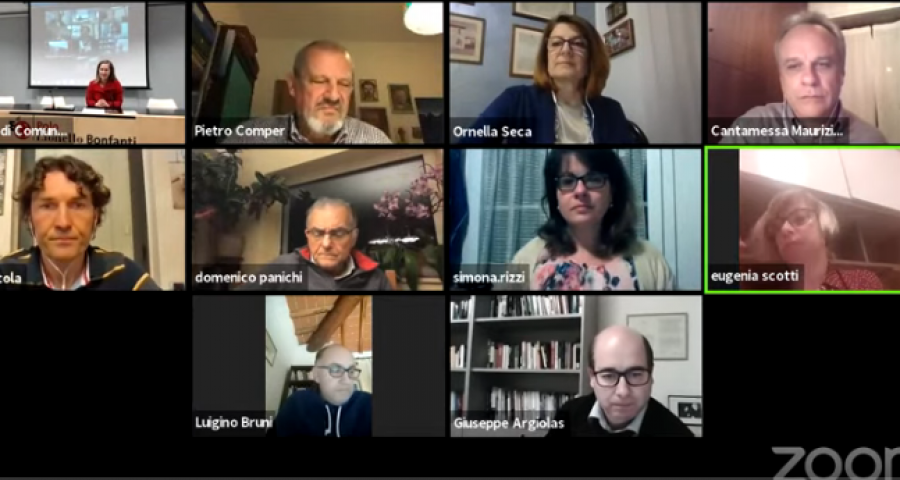How have the Italian EoC entrepreneurs organized themselves in these two months of lockdown? What energy did they draw on to find all possible solutions to save their companies and the jobs in them?
by Antonella Ferrucci
Last night the webinar organized by AIPEC and Polo Lionello Bonfanti collected some of their testimonies. Those present were Pietro Comper (Tecnodoor) Paolo and Livio Bertola (Bertola srl and High tecnology Italia), Maurizio Cantamessa and Simona Rizzi (Gruppo Tassano), Domenico Panichi (Il Picchio), Ornella Seca (agent at Assicurazioni in Abruzzo). The answers they gave are surprising in their simplicity, concreteness and effectiveness. It almost seems that having been trained in all these years to trade "relational goods" in their business, putting employees, customers and suppliers at the centre, today provides them with an extra gear to respond promptly to an emergency that has caught them a little less unprepared. We have summarized their experiences, moderated by journalist Eugenia Scotti and commented by Professor Giuseppe Argiolas, the new rector of Sophia.
Pietro Comper, manufactures and sells doors, entrance doors and gates in Rovereto (TN). "It has been our practice for years that whenever a problem arises in the company we talk about it together and that's how 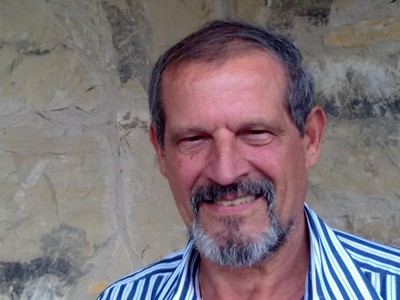 we have done this time, too. We had some backlog of work so we didn't close right away. As far as smart working is concerned, we have been working for a couple of years now with an employee who moved to Puglia, so with that experience it was easier to organize work from home for the employees. For the those employed in production and assembly, it was not so easy to decide how to organize themselves: we left them free to choose, but because of the relationships built in recent years, we could do this in the certainty that there would be no recriminations. It was natural for us to listen to everyone's needs and decide that those who had grandparents at home or a family with small children had to be among the last to be re-involved in the production work. Those who did not have problematic situations were immediately available to continue working safely. The culture of trust, confrontation and listening that we have created in recent years in the company has made it natural, "normal" to act in this way and this is one of the greatest things we have experienced in these two months".
we have done this time, too. We had some backlog of work so we didn't close right away. As far as smart working is concerned, we have been working for a couple of years now with an employee who moved to Puglia, so with that experience it was easier to organize work from home for the employees. For the those employed in production and assembly, it was not so easy to decide how to organize themselves: we left them free to choose, but because of the relationships built in recent years, we could do this in the certainty that there would be no recriminations. It was natural for us to listen to everyone's needs and decide that those who had grandparents at home or a family with small children had to be among the last to be re-involved in the production work. Those who did not have problematic situations were immediately available to continue working safely. The culture of trust, confrontation and listening that we have created in recent years in the company has made it natural, "normal" to act in this way and this is one of the greatest things we have experienced in these two months".
Paolo and Livio Bertola have two companies in Marene and Cherasco (CN) that carry out chrome plating work for a number of large companies in the automotive sector in Italy and abroad. Covid-19 surprised them at a time when they were hoping to reap the benefits of some large investments made in the last two years. 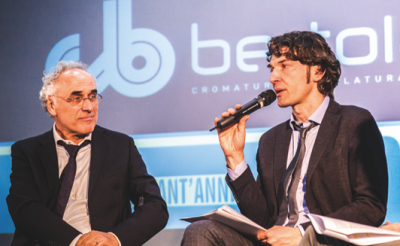 Paolo Bertola: "The Economy of Communion, in fact, turned out to be the first good investment made in these years and in this period I have been able to see the fruits of this entrepreneurial style; the whole importance of that balance sheet item called "relational goods", built with the collaborators but also with suppliers and customers, came to the fore. Even though we were at a peak time for our work, we faced each other to understand everyone's needs and, once the urgencies were met, we decided to stop our production even before the Government Decree imposed it". Livio Bertola: "I'm very eager to tell you about our experience. A multinational company that we have been serving for 30 years and that is insisting on exasperated aesthetics, sent us back a batch of articles with very slight imperfections, claiming that the quality was not enough for aesthetic reasons. At the time of Coronavirus this attitude shocked us: that piece had already undergone a very laborious and even environmentally impacting processing. But out of respect for the earth and the environment, there is no longer any sense in pursuing this culture of rejecting the imperfect! We let our customer know, ready to lose them, that we don't share this line of thought and that we think we can also make imperfect pieces (imperfection may well be a small dot you can only see with a magnifying glass) because this exasperation produces a crazy amount of pollution in all areas (thinking also of agriculture where an apple that has a small imperfection is discarded) and can no longer be accepted. We intend to continue this battle because, to our mind, this is one of the ways to save the world".
Paolo Bertola: "The Economy of Communion, in fact, turned out to be the first good investment made in these years and in this period I have been able to see the fruits of this entrepreneurial style; the whole importance of that balance sheet item called "relational goods", built with the collaborators but also with suppliers and customers, came to the fore. Even though we were at a peak time for our work, we faced each other to understand everyone's needs and, once the urgencies were met, we decided to stop our production even before the Government Decree imposed it". Livio Bertola: "I'm very eager to tell you about our experience. A multinational company that we have been serving for 30 years and that is insisting on exasperated aesthetics, sent us back a batch of articles with very slight imperfections, claiming that the quality was not enough for aesthetic reasons. At the time of Coronavirus this attitude shocked us: that piece had already undergone a very laborious and even environmentally impacting processing. But out of respect for the earth and the environment, there is no longer any sense in pursuing this culture of rejecting the imperfect! We let our customer know, ready to lose them, that we don't share this line of thought and that we think we can also make imperfect pieces (imperfection may well be a small dot you can only see with a magnifying glass) because this exasperation produces a crazy amount of pollution in all areas (thinking also of agriculture where an apple that has a small imperfection is discarded) and can no longer be accepted. We intend to continue this battle because, to our mind, this is one of the ways to save the world".
Simona Rizzi and Maurizio Cantamessa represent the Tassano Group from Casarza Ligure (GE), which includes cooperatives and social enterprises with a strong vocation for employment and care. Il sentiero di Arianna (Arianna's Path - the tr.) is one of these enterprises, all female, which has made listening to the care needs of its workers one of its strong points. Simona: "In recent years we have worked with great attention to the harmonization of life and work times, so in a sense, the particularly difficult time we are living today has not caught us unprepared. We have shown great flexibility and readiness to take action in reorganizing the life of the company and this is the result of years of work and attention to the person in his or her 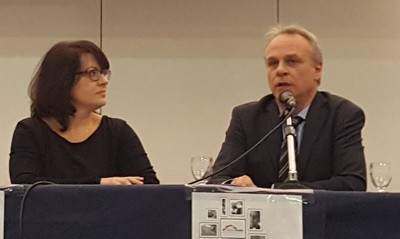 uniqueness. We are mainly women and in these years we have been through the birth of many children, we have taken care of elderly parents, we have faced painful moments together and this has made us stronger. In the space of a few days (the ordinance that closed the schools in Liguria came to effect on Sunday, 23rd February) we prepared the project "Onde amiche, comunità in rete" (Waves of friends, networking communities - the tr.), which has received funding from the Compagnia di San Paolo Foundation and the forces that are part of our network of relationships have joined in, too: volunteer, private and public social associations, schools and community hospitals. There are three recipients of the project: children who need to be able to continue meeting their educators at least virtually, the severely disabled who, with all the necessary safety devices, we continued to visit in person, and the elderly. Onde amiche manages to reach all the recipients of the project through technological tools (which we are buying and will donate to those who need them) and aims to remove these people from the isolation created during the quarantine".
uniqueness. We are mainly women and in these years we have been through the birth of many children, we have taken care of elderly parents, we have faced painful moments together and this has made us stronger. In the space of a few days (the ordinance that closed the schools in Liguria came to effect on Sunday, 23rd February) we prepared the project "Onde amiche, comunità in rete" (Waves of friends, networking communities - the tr.), which has received funding from the Compagnia di San Paolo Foundation and the forces that are part of our network of relationships have joined in, too: volunteer, private and public social associations, schools and community hospitals. There are three recipients of the project: children who need to be able to continue meeting their educators at least virtually, the severely disabled who, with all the necessary safety devices, we continued to visit in person, and the elderly. Onde amiche manages to reach all the recipients of the project through technological tools (which we are buying and will donate to those who need them) and aims to remove these people from the isolation created during the quarantine".
Maurizio Cantamessa: "For three years we have prepared a social report and in the last one of last November - still in unsuspicious times - we wrote: "it is within situations of fragility that we discover that no one can save themselves, that we depend on each other and that this dependence is not a limit to our freedom. Fragility becomes the condition for realizing possibilities". We are born fragile, we are social cooperatives of work integration and we never imagined we would find ourselves in a situation like this: I do not hide our concern about a very near future. We were thinking about how not to leave our workers at home and the idea of producing the much sought-after masks came to mind. One of our factories, where 70 people from social distress normally work, has 4 customers who, for different reasons, work different types of fabrics. We had a meeting and discovered that we have a good cutting ability, someone else has good sewing ability... in practice, we created a collaboration between our clients so the production of masks could start. These have been some extraordinary days. As soon as it became known that we were producing masks, 10 orders arrived (starting from the butcher, who wanted 10, to the Region of Liguria) and in all this process it was certainly the ability of creating a network that made the difference".
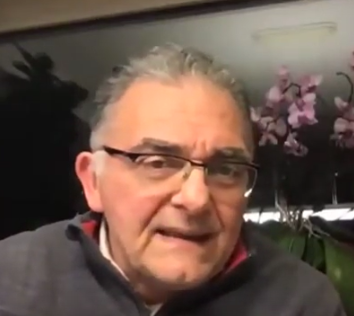 Domenico Panichi is the president of the Consortium of Cooperatives Il Picchio di Ascoli Piceno, which consists of about twenty cooperatives that for the most part deal with services to minors (nurseries, kindergartens and schools) that obviously all stopped with the Coronavirus crisis. "Our operators have done a very important job of maintaining relationships even working from home. Our nursery educators, for example, are in constant video-calls with their children, keeping the relationship alive and providing support to families. And the nice thing is that we didn't have to ask them anything: practically all of them have dedicated themselves to the job, going even beyond their normal activities. Here, too, we have networked with the other local organisations and with the parents, to deal with the problem of child management in the absence of operational educational structures, when the parents return to work. The project “Un metro da te, ma sotto il cielo” ("A metre from you, but under the sky” - the tr.) is being created for 0 to 6 year-old children, small groups with an educator and a health safety officer". The format of this project will be proposed to the Region for the management of summer camps.
Domenico Panichi is the president of the Consortium of Cooperatives Il Picchio di Ascoli Piceno, which consists of about twenty cooperatives that for the most part deal with services to minors (nurseries, kindergartens and schools) that obviously all stopped with the Coronavirus crisis. "Our operators have done a very important job of maintaining relationships even working from home. Our nursery educators, for example, are in constant video-calls with their children, keeping the relationship alive and providing support to families. And the nice thing is that we didn't have to ask them anything: practically all of them have dedicated themselves to the job, going even beyond their normal activities. Here, too, we have networked with the other local organisations and with the parents, to deal with the problem of child management in the absence of operational educational structures, when the parents return to work. The project “Un metro da te, ma sotto il cielo” ("A metre from you, but under the sky” - the tr.) is being created for 0 to 6 year-old children, small groups with an educator and a health safety officer". The format of this project will be proposed to the Region for the management of summer camps.
Ornella Seca is an insurance agent working with various agencies scattered throughout the area: "We are an essential service for which we had to continue working, but 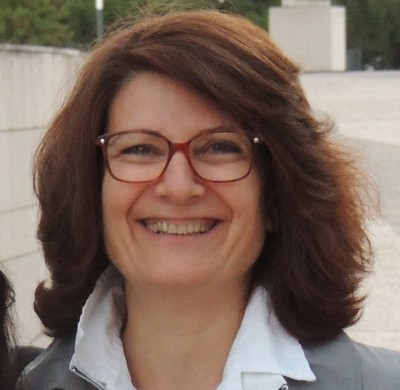
In times of Covid-19, the experiences of Pietro, Livio, Paolo, Simona, Maurizio, Domenico and Ornella are connected by a single golden thread: having taken care of their relationships with collaborators, customers and suppliers for years has provided them with a precious and truly surprising capital of creativity, willingness to network and reciprocity which has generated simple yet ingenious solutions, undoubtedly the result of a "collective intelligence". Indeed, proven by the facts, relational assets have turned out to be an excellent investment for times of crisis.
Re-watch the webinar of 22nd April

